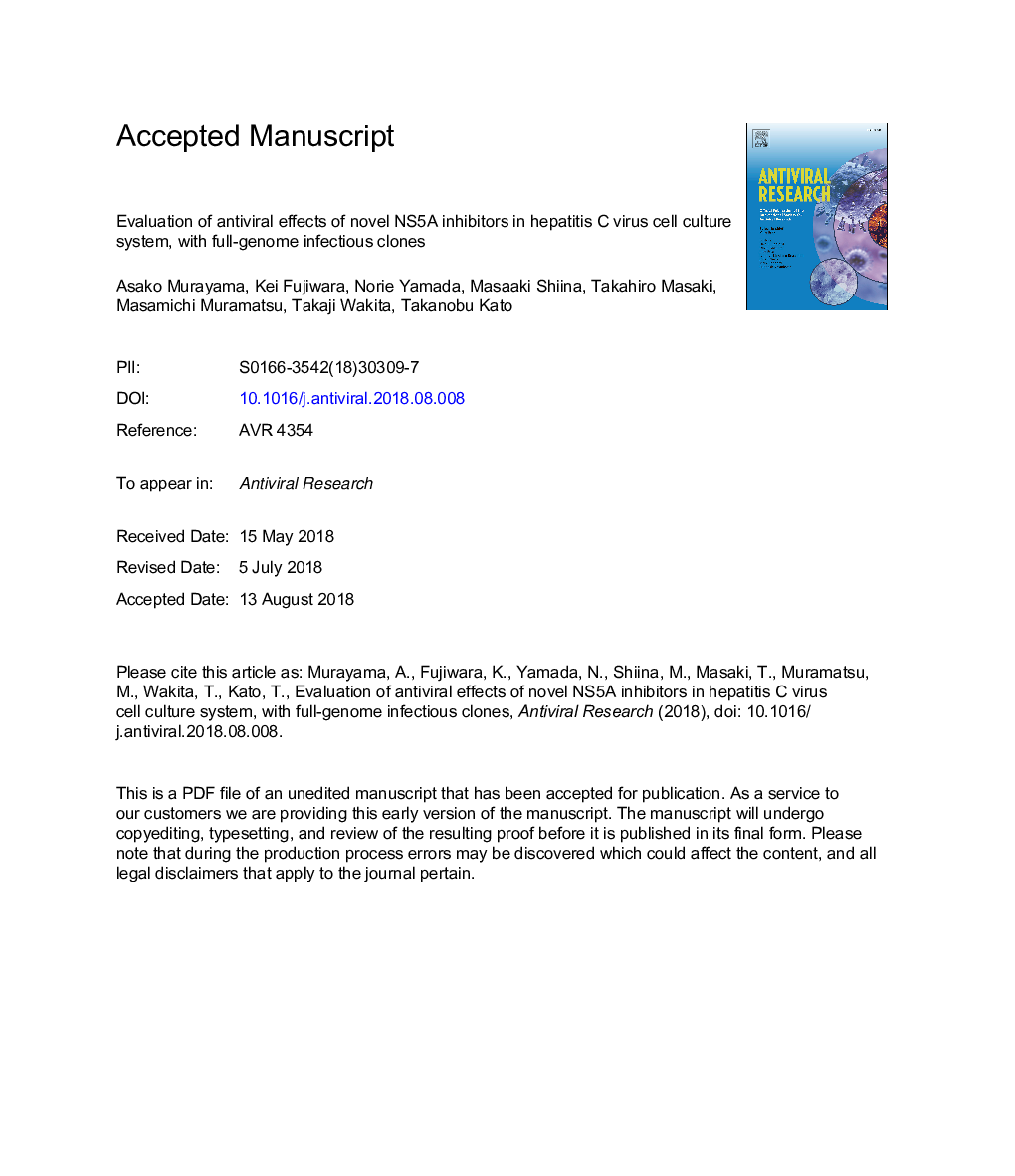| Article ID | Journal | Published Year | Pages | File Type |
|---|---|---|---|---|
| 8522954 | Antiviral Research | 2018 | 40 Pages |
Abstract
Nonstructural protein 5A (NS5A) inhibitors of hepatitis C virus (HCV) are known to have potent anti-viral effects; however, these inhibitors have limited activities on strains with resistant-associated substitutions or non-genotype 1 strains. To overcome these shortcomings, novel NS5A inhibitors have been developed and approved for clinical application. The aim of this study was to evaluate the anti-viral effect of novel NS5A inhibitors (derivatives of odalasvir) on HCV genotype 2 strains in a cell culture system. Chimeric JFH-1 viruses replaced with NS5A of genotypes 1 and 2 were utilized to assess the genotype-specific potencies of NS5A inhibitors. We also examined full-genome infectious clones of JFH-1, J6cc, and J8cc to confirm the effects of NS5A inhibitors on genotype 2 strains. All chimeric viruses were capable of replication at similar levels in cell culture. We examined the anti-viral effects of derivatives of the novel NS5A inhibitor and compared with the first-generation NS5A inhibitor, daclatasvir (DCV). These compounds inhibited replication of chimeric JFH-1 viruses with NS5A of genotypes 1 and 2Â at low concentrations in comparison with DCV. The EC50 values of J6cc and J8cc to these compounds were more than 100-fold lower than that of DCV. By long-term culture in the presence of these compounds, we obtained highly resistant variants and identified the responsible substitutions. In conclusion, novel NS5A inhibitors displayed improved potency against HCV genotype 2 strains compared with DCV. However, the activity of these compounds was impaired by emerging resistance-associated substitutions.
Keywords
Related Topics
Life Sciences
Immunology and Microbiology
Virology
Authors
Asako Murayama, Kei Fujiwara, Norie Yamada, Masaaki Shiina, Hussein Hassan Aly, Takahiro Masaki, Masamichi Muramatsu, Takaji Wakita, Takanobu Kato,
